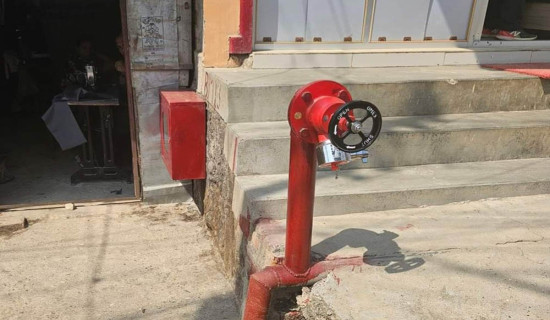- Thursday, 2 May 2024
Towards Greener Economy
A green economy is a low carbon, resource efficient and socially inclusive economy, according to United Nations Environment Programme (UNEP). Such an economy seeks to drive employment and income growth through public and private investment into economic activities, infrastructure and assets that allow reduced carbon emissions and pollution. It also aims to enhance energy and resource efficiency, as well as prevent the loss of biodiversity and ecosystem. That means sustainable consumption and production – that not only aims at minimising waste generation and emissions but also encourages society to consume no more than needed – are the hallmarks of a green economy. Such practices lead to the improvement in production process and reduction in the exploitation of natural resources, which are, of course, finite.
The push towards green economy has of late been gaining momentum, with more and more countries and companies investing in renewable energy sources and eco-friendly products. Many of the manufactured products these days come with a label that not only boasts the amount of recycled fabric or ingredients that constitute them but also how the entire sourcing and manufacturing process is environmentally friendly and sustainable. In fact, the frenzy towards green economy has left no company of repute untouched, with virtually all passionately working towards becoming a net-zero carbon emitter. Two more news reports are shaping our path to green economy: steady growth in the share of renewable energy and rise of electric vehicles (EVs).
As the world takes up green transition with urgency, Nepal cannot afford to stay aloof. If current trends are anything to go by, we are foraying into a future marked by green economy, albeit slowly. More and more EVs are gradually taking over the roads. The remarkable growth in generation of hydropower has inspired hope. How much the country has attached importance to this endeavour is highlighted by the remarks made by Minister for Energy, Water Resources and Irrigation Shakti Bahadur Basnet while speaking at the Hydrogen Dialogue programme recently. The minister has said that there is a need to give priority to the green economy in the policy and programmes to be made by the government, underscoring the urgency of the matter.
Amid all these, the question we should be asking is this: How far have our efforts gone to wean ourselves off the fossil fuel? Our import of petroleum products have yet to fall markedly. The sight of decades-old vehicles with inefficient engines – whose plumes of emission into the air leave the road and its surroundings shrouded in highly toxic haze as they play the road – is still commonplace. Although the condition in the developed world is not as stark, they, too, have a lot to do to lower their carbon footprint. Funding for the exploration of fossil fuel has yet to drop significantly. Coal, one of the dirtiest fuels, still accounts for the significant source of their energy. Substitute for highly polluting trucks, for example, essential to ferry goods from one corner to another is yet to be found.
For all such shortcomings, there is no alternative to vigorously pursuing the goal towards green economy. The push behind green transition is the catastrophic rise in global temperature owing mainly to the greenhouse gas emissions from sectors like transportation, manufacturing, agriculture, among others. It would be no exaggeration to say that we are running out of time.















